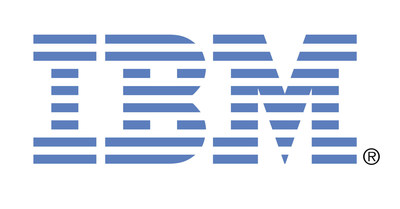

IBM Report Highlights Untapped Opportunities for Banks to Support SMEs
ARMONK, N.Y., Sept. 18, 2024 /PRNewswire/ — New research from IBM’s Institute for Business Value and the Banking Industry Architecture Network (BIAN), with contributions from the SME Finance Forum managed by the International Finance Corporation (IFC), reveals that banks might be missing significant growth opportunities in the small to medium-sized enterprise (SME) sector. This is due to a heavy focus on risk reduction, regulatory compliance, and the high costs associated with serving a diverse client base.
The “Banking for Small and Medium Enterprises: Serving the World Economy with Data and AI” report, based on a global survey of SME business owners, managers with 50 or more employees, senior banking executives, and fintech leaders, provides valuable insights and analysis.
Significance of SMEs in the Global Economy
SMEs account for 90% of all businesses, employ 70% of the workforce, and contribute 50% of global gross domestic product (GDP). Despite their crucial role in the economy, there is a notable disconnect between what SMEs need to grow and what services banks currently offer. This gap presents a significant opportunity for agile financial institutions to step in and cater to these unmet needs.
“The disparity between the needs of small and midsized business leaders and the services most banks currently offer is striking,” said Shanker Ramamurthy, Global Managing Partner Banking & Financial Markets at IBM Consulting. “The good news is that emerging technologies like generative AI, combined with automation and a robust data strategy, have the potential to significantly enhance the role of financial institutions in supporting the growth of this vital client segment.”
Technological Integration and Adaptation
For banks to effectively meet the needs of a dynamic marketplace, it is crucial to build, integrate, and scale a flexible technology environment. John Duigenan, General Manager Global Financial Services Industry at IBM Technology, highlighted the importance of hybrid cloud strategies. “While banks globally are increasingly leveraging the cost-effectiveness of cloud for high-volume transactions, they retain core functions and sensitive data on-premises. A robust hybrid cloud strategy allows institutions to fully utilize the power of generative AI for insights into customer behaviors and needs, while ensuring high levels of privacy, security, and resilience.”
Financial services organizations must adopt a technology development methodology that enables organization-wide acceleration to better serve clients across all business domains. “A rational, standardized approach to technology architecture is essential for achieving substantial efficiencies and fostering future innovation,” said Steve Van Wyk, Chairman of the Banking Industry Architecture Network. “By adopting proven industry standards, banks can enhance their competitiveness.”
Key Findings
- Less than 6% of bank executives rated their institution’s SME banking services as “A”. Nearly half (47%) gave themselves a “C”.
- SMEs expect banks to understand their unique business needs, offer tailored solutions, and provide networking opportunities. In contrast, banks prioritize apps, dedicated relationship managers, and branch proximity.
- SMEs cited compliance and legal requirements and sustainability decisions and reporting as their top needs, while banks prioritize fraud monitoring in transactions and insurance for unforeseen events.
- 64% of bank executives recognize the value of technology architecture standards, noting faster build times, reduced development and maintenance costs, and quicker integration.
Recommendations
- Financial institutions should invest in ecosystem platforms and partners to create opportunities for SME clients through digital innovation.
- An enterprise-wide approach to scaling emerging technologies, rather than tactical applications, optimizes the benefits of generative AI, automation, and data across all business lines and customer segments.
- Banks should embrace emerging technologies like generative AI and automation to achieve greater efficiencies in compliance, risk, and operations, thereby redirecting resources to enhance SME client offerings.
For the complete report, visit www.ibm.com/thought-leadership/institute-business-value/en-us/report/small-medium-enterprises-banking.
Methodology
The IBM Institute for Business Value surveyed over 1,000 SME owners and managers with 50 or more employees across nine countries to explore their banking needs and adaptation to digital services. Nearly 700 banking executives from 25 countries were also surveyed to understand how their institutions are competing in SME banking. Additionally, one-on-one interviews with executives from financial institutions and fintechs provided further insights. Data collection for the study occurred between June and August 2024.
The IBM Institute for Business Value combines global research and performance data with expertise from industry thinkers and leading academics to deliver insights that help business leaders make smarter decisions. For more world-class thought leadership, visit www.ibm.com/ibv.
About IBM
IBM is a leading provider of global hybrid cloud, AI, and consulting expertise. Serving clients in over 175 countries, IBM helps organizations capitalize on data insights, streamline business processes, reduce costs, and gain a competitive edge. Thousands of governments and corporate entities in critical sectors such as financial services, telecommunications, and healthcare rely on IBM’s hybrid cloud platform and Red Hat OpenShift for efficient, secure digital transformations. IBM’s innovations in AI, quantum computing, industry-specific cloud solutions, and consulting offer flexible options to clients. All of this is backed by IBM’s commitment to trust, transparency, responsibility, inclusivity, and service. For more information, visit www.ibm.com.
References:
Financial Institutions Group (FIG) MSMEs. International Finance Corporation (IFC). https://www.ifc.org/content/dam/ifc/doc/2024/msme-s-factsheet-ifc-financial-institutions-group.pdf
For more information, visit www.ibm.com.
SOURCE IBM
For more Information, Refer to this article.
































